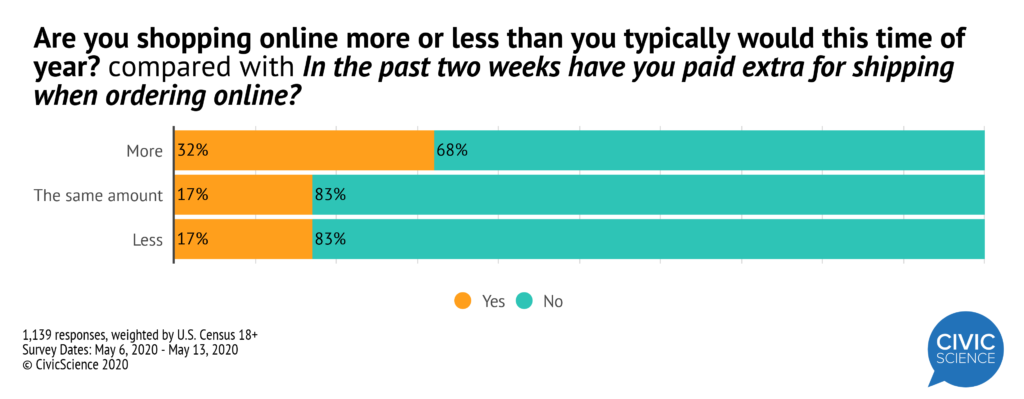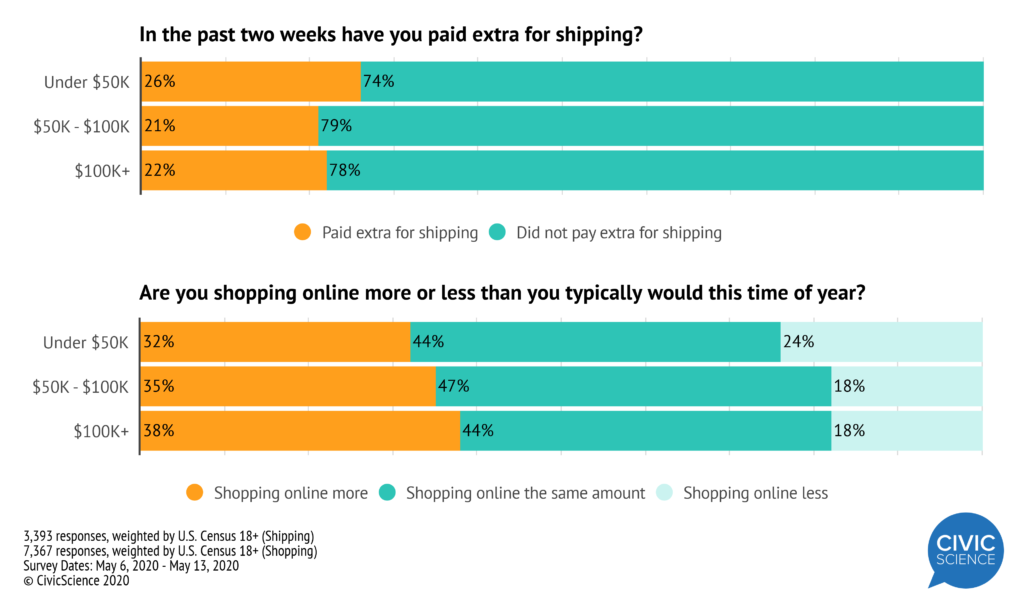Businesses know how much consumers value free shipping so it comes as no surprise that they have recently waived shipping fees, offered reduced rates, or even kept costs fixed to maintain satisfied customers and meet their bottom line. Between quarantine restrictions and an increase in demand for certain goods, have consumers placed more or less importance on free shipping?
A CivicScience survey of over 24,000 U.S. adults shows 37% are shopping online more than they typically would this time of year. And of those shopping online, 45% would remain quarantined even in the event of an official government notice to resume daily activities. It’s clear that lockdowns have increased how much people are turning to the internet for many of their usual purchases.
Monthly tracking shows consumers overall still value free shipping as much as they did before the coronavirus outbreak (currently at 97% of consumers). Yet, when asked if they have recently paid extra on shipping, a quarter of online shoppers admitted to shelling out more than usual.
And those most likely to have paid extra to ship were those who report shopping online more than they usually do. 
Also likely to pay extra for shipping were people making under $50K a year, yet the data show they are also shopping online less than they typically would at this time. Those making $100K or more were the ones most likely to be shopping online more. While a higher income indicated more online shopping, it did not reflect similar rates of paying extra for shipping.
In general, the more someone is online shopping right now the more likely they are to have paid a fee for the items they wanted delivered. The question remains, how long are they willing to keep that up? Will more online shoppers concede to a shipping fee? Or will those who have paid extra eventually decide the order (or the need) isn’t worth the added cost?
Our clients have access to deeper insights like “What makes consumers willing to pay more for shipping?” or “What items do consumers think are worth the extra cost?” Sign up to unlock answers to these critical questions and more.










